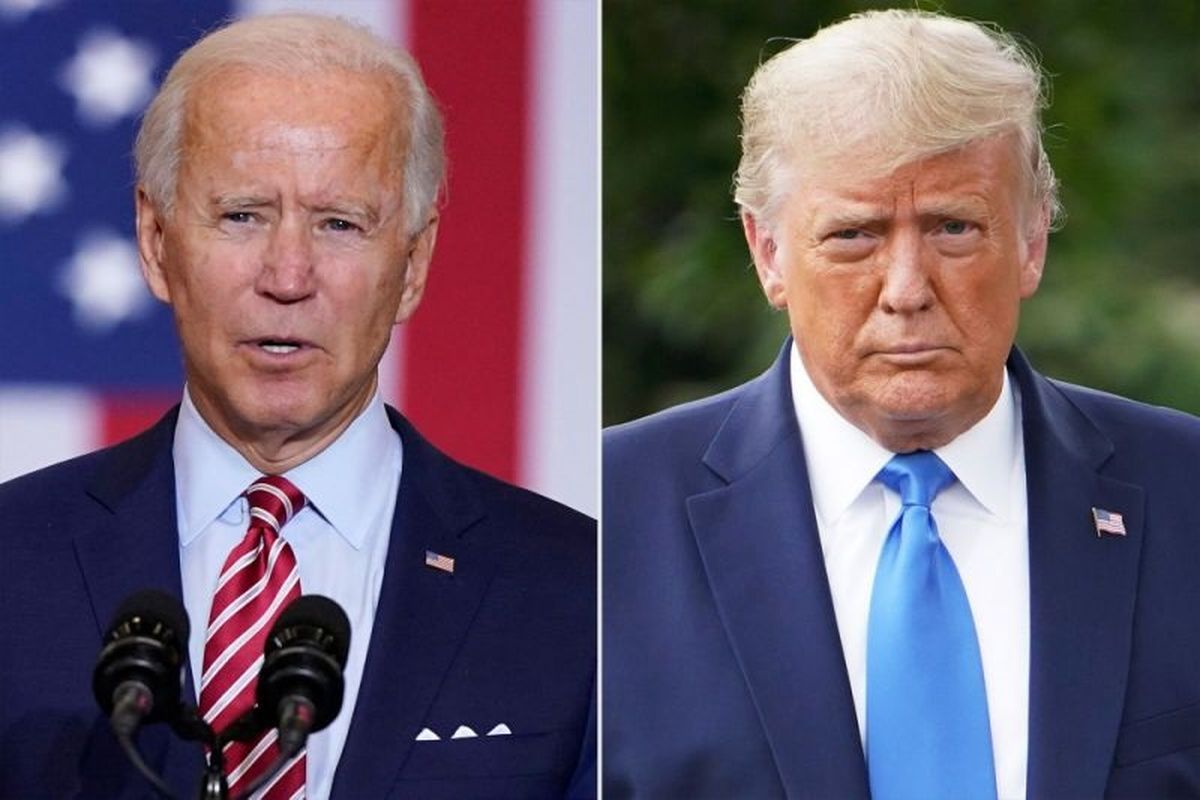Trump vs Biden Policies 2020: Where Do They Stand on Key Issues?

WASHINGTON, KOMPAS.com - As Election Day draws near in the US, the policies offered by President Donald Trump and Joe Biden are all but similar.
Although the 2020 US presidential election has been racially charged and tumultuous, one dynamic that has remained constant is Trump’s and Biden’s policy path when either win the presidential ticket.
Trump’s policies, like many fellow Republicans, holds out tax reductions and regulatory cuts as economic imperatives and frames himself as a conservative champion in the culture wars.
The US President has offered few details about how he would pull the levers of government in a second term. His most consistent argument focuses on stopping Democratic opponent Joe Biden and his party from pushing US policy leftward.
Read also: Europeans Want Joe Biden to Win in US Election 2020: Poll
Joe Biden, for his part, is not the socialist caricature depicted by Trump.
But he is every bit a center-left Democrat who frames the federal government as the force to combat the coronavirus, rebuild the economy, and address centuries of institutional racism and systemic inequalities.
The former Vice President and US senator also offers his deal-making past as evidence he can do it again from the Oval Office.
A look at where the rivals stand on key issues:
Trump vs Biden Policies 2020: Economy and Taxes
Low unemployment and a soaring stock market were Trump’s calling cards before the pandemic.
While the stock market has clawed its way back after cratering in the early weeks of the crisis, unemployment stands at 7.9 percent.
The nearly 10 million jobs that remain lost since the pandemic began exceed the number that the nation shed during the entire 2008-2009 Great Recession.
President Donald Trump has predicted that the US economy will rebound in the third and fourth quarters of this year and is set to take off like a “rocket ship” in 2021.
He promises that a coronavirus vaccine or effective therapeutics will soon be available, allowing life to get back to normal.
Read also: Regeneron’s Unapproved Antibody Drug Praised as Trump Recovers
His push for a payroll tax cut over the summer was thwarted by stiff bipartisan opposition. But winning a second term — and a mandate from voters — could help him resurrect the idea.
First and foremost, Joe Biden argues that the economy cannot fully recover until Covid-19 is contained.
For the long-term recovery, he pitches sweeping federal action to avoid an extended recession and to address longstanding wealth inequality that disproportionately affects nonwhite Americans.
His biggest-ticket plans include a $2 trillion, four-year push to eliminate carbon pollution in the US energy grid by 2035 and a new government health insurance plan open to all working-age Americans (with generous subsidies).
Read also: Leaders Warn UN: If Covid-19 Doesn’t Kill Us, Climate Change Will
He proposes new spending on education, infrastructure and small businesses, along with raising the national minimum wage to $15 an hour.
The Democratic presidential nominee would cover some but not all of the new costs by rolling back much of the 2017 GOP tax overhaul.
He wants a corporate income tax rate of 28 percent (lower than before but higher than now) and broad income and payroll tax hikes for individuals with more than $400,000 of annual taxable income.
All that would generate an estimated $4 trillion or more over 10 years.
The Democratic presidential nominee frames immigration as an economic matter as well.
Read also: US Government to Reject New DACA Applications
He wants to expand legal immigration slots and offer a citizenship path for about 11 million residents who are in the country illegally but who, Biden notes, are already economic contributors as workers and consumers.
Trump vs Biden Policies 2020: Education
President Donald Trump has pushed for schools to fully reopen for in-person learning and announced that the federal government will begin distributing millions of rapid coronavirus tests to states.
He urged governors to use them to reopen schools for students in kindergarten through 12th grade.
Donald Trump has also used his call for schools to fully reopen as an opportunity to spotlight his support for charter schools and school choice.
Education Secretary Betsy DeVos, a longtime proponent of charter schools and school voucher programs, has suggested that families be allowed to take federal money allotted to school districts that don’t open and spend it on private schools that do open.
Read also: Schools in Indonesia-Malaysia Border Area Reopen during Covid-19 Pandemic
For most of President Donald Trump's first term, his administration sought major increases to federal charter school grant aid. Congress responded with relatively small increases.
With higher education, the US President has repeatedly complained that campuses are beset by “radical left indoctrination”.
He has threatened to defund universities and said he would ask the Treasury Department to reexamine the tax-exempt status and federal funding of unspecified schools.
The Democratic presidential nominee wants schools to get more federal aid for pandemic-related costs through the same federal law used after national disasters like hurricanes and wildfires.
Read also: This Year's Extreme Weather Consistent with Worsening Climate Change
Beyond Covid, Joe Biden wants the federal government to partner with states to make public higher education tuition-free for any student in a household earning up to $125,000 annually.
The assistance would extend to everyone attending two-year schools, regardless of income.
He also proposes sharply increasing aid for historically Black colleges. His overall education plans carry a 10-year price tag of about $850 billion.
He calls for universal access to prekindergarten programs for three- and four-year-olds; tripling Title I spending for schools with higher concentrations of students from low-income households; more support for non-classroom positions like on-campus social workers; federal infrastructure spending for public school buildings; and covering schools’ costs to comply with federal disability laws.


































